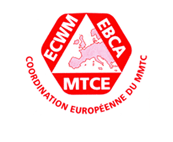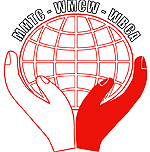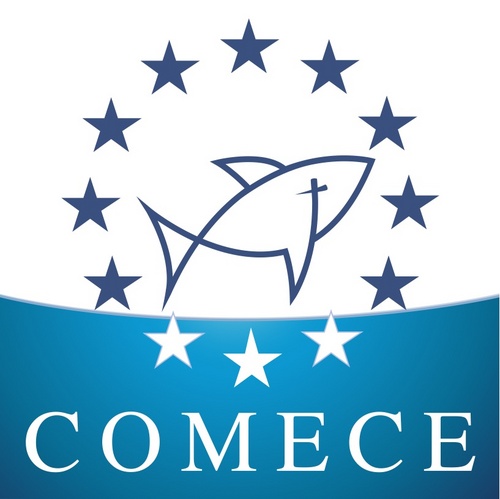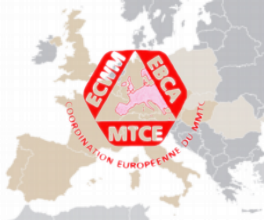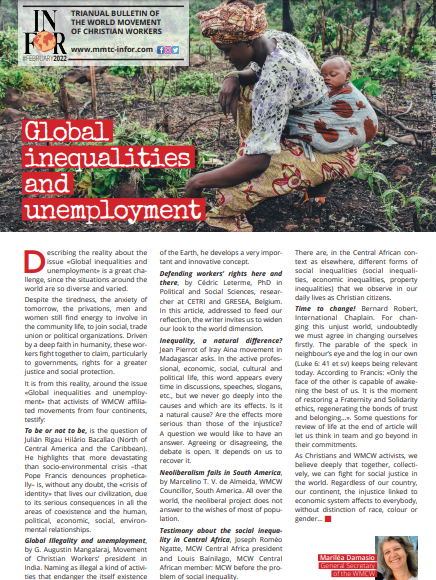Europe Day 2022: Statement of European Christian Workers Movement (ECWM)

Europe, the war, God, people
In this year 2022, we will celebrate Europe Day (9 May) against the terrible backdrop of the war in Ukraine.
What can we Christians say?
As was also the case with COVID, it seems that the drama in Ukraine is once again raising questions about God, life and the human being. What is God doing in the face of all this? Where is God in the face of those empty streets, populated only by corpses, some with their hands tied behind their backs? Where is God in the face of those mothers desperate because they do not know how to free their children from panic, hunger or suffering beyond their little strength? How is it possible that God allows what is happening in Ukraine today? Or what happened in the various Auschwitzes of yesterday.
We want to be Christians and witnesses of the proposal of salvation and liberation that Jesus Christ offers to society and the world of work, but the people around us present us with these questions.
The problem of the "silence of God", Christians have had to endure since the beginning of time.
May 1st: Covid19 Lockdown And Its Impact On Workers
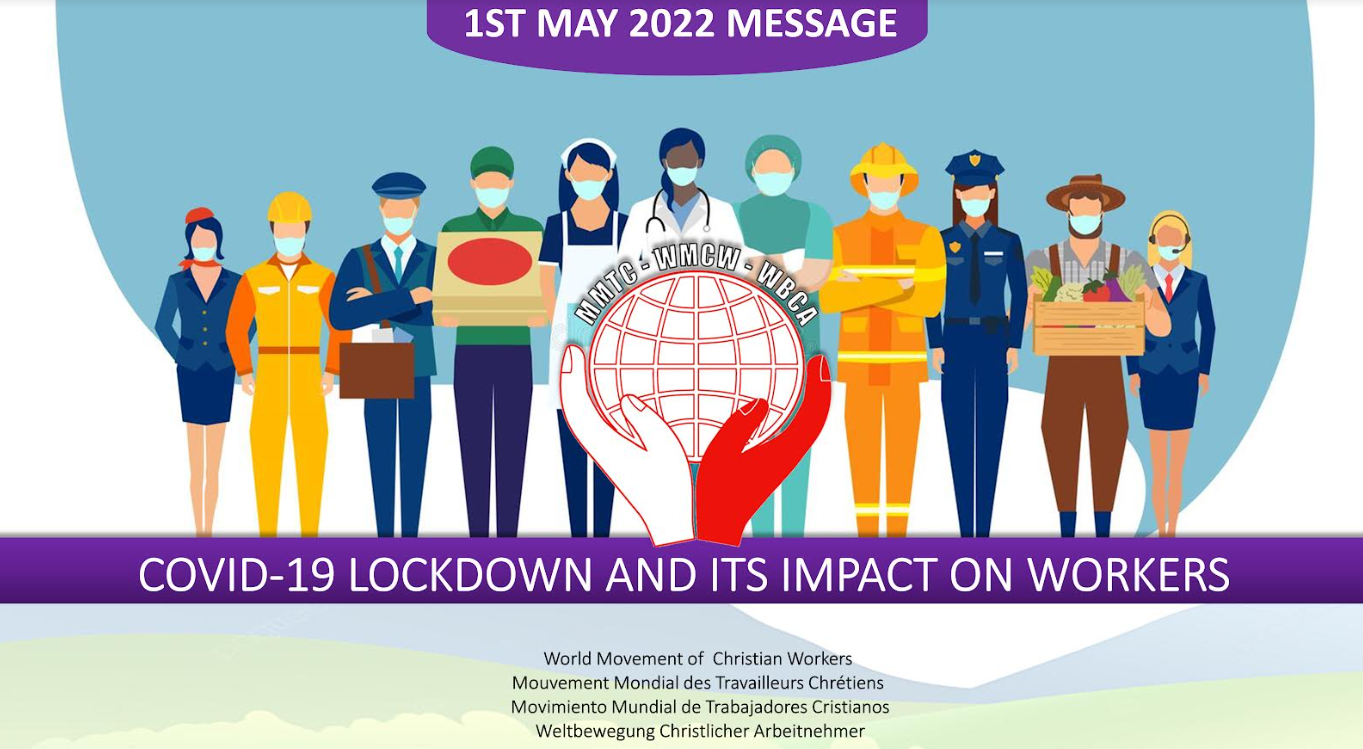
Confinement due to Covid-19 began two years ago and in Uganda, after almost two years workers have experienced unspeakable stories of suffering and despair. Many workers have lost their jobs due to the long period of confinement and unemployment levels have risen.
Uganda was one of the countries with the longest lockdown period, from 1 April 2020 to January 2022, when the economy was fully reactivated. Informal entrepreneurs had no income during this period and had to dip into their own savings, rely on government food aid or seek help from family and friends to survive. This means that during the period of closure, most workers found themselves in a subsistence economy.
The conditions of confinement have affected almost all sectors of the labour market. The number of people employed in Uganda has declined from 9 million in 2016/17 to 8.3 million in 2019/20. This led to many wage earners losing their jobs. Other workers were forced to close their businesses.
Due to the unemployment situation in the country, even before the pandemic, Uganda used to export labour to the Middle East, especially to Saudi Arabia and the United Arab Emirates. This was despite reports of poor working conditions. The number of Ugandan migrants has decreased from 25,363 in 2019 to 9,026 in 2020, due to the effects of the pandemic. This explains the extent of the impact of confinement on workers in Uganda and globally.
1.701 good reasons to protect Sunday as the day of the rest
https://www.youtube.com/watch?v=RDHOPQWulJU
Video: The world's largest Sunday picnic blanket
In March 2022, it will be 1.701 years since the Decree of the Roman Emperor Constantine establishing Sunday as the Day of Rest throughout the Roman Empire. In several places in Europe, there are different initiatives to mark the celebration of the International Day of Labour-Free Sunday on 3 March.
In Germany, KAB – the Catholic Workers' Movement is using this day to express its deep concern about the future of the Free Sunday and is urging the political powers to continue to apply the law protecting Sunday as a day of rest in Germany. This movement for Free Sunday represents not only supporters of KAB - the Christian Workers' Movement of Germany, but countless people who see Sunday as a symbol of a life shaped in freedom and self-determination. In its commitment, the KAB stands alongside trade unions, major sports associations and other Christian churches. In fact, as in other countries in Europe, the protection of Free Sunday is repeatedly exposed to attacks by employers' associations, the retail sector and political parties, especially those in the liberal sector. These attacks are now using the economic crisis caused by pandemic restrictions to justify a general extension of the working week to 60 hours and a temporary permission to work on Sundays and public holidays.
Message of the Holy Father for the Popular Movements
https://www.youtube.com/watch?v=XqNsr9cBsXM
Brothers, sisters, dear social poets,
1. Dear social poets
This is what I like to call you: social poets. You are social poets, because you have the ability and the courage to create hope where there appears to be only waste and exclusion. Poetry means creativity, and you create hope. With your hands you know how to shape the dignity of each person, of families and of society as a whole, with land, housing, work, care, and community. Thank you, because your dedication speaks with an authority that can refute the silent and often polite denials to which you have been subjected, or to which so many of our brothers and sisters are subjected. But, thinking of you, I am convinced that your dedication is above all a proclamation of hope. Seeing you reminds me that we are not condemned to repeat or to build a future based on exclusion and inequality, rejection or indifference; where the culture of privilege is an invisible and insurmountable power; and where being exploited and abused are common methods of survival. No! You know how to proclaim this very well. Thank you.
Thank you for the video we have just seen. I have read the reflections from the meeting, the testimonies of those who lived in these times of tribulation and anguish, the summary of their desires and their proposals. Thank you. Thank you for including me in the historical process that you are going through, and thank you for sharing with me this fraternal dialogue that seeks to see the great in the small and the small in the great, a dialogue that is born in the peripheries, a dialogue that reaches Rome and wherein we may all feel invited and engaged. “If we want to encounter and help one another, we have to dialogue”, [1] and how much!
VIDEO MESSAGE OF HIS HOLINESS POPE FRANCIS ON THE OCCASION OF THE 109th MEETING OF THE INTERNATIONAL LABOUR ORGANIZATION (ILO)
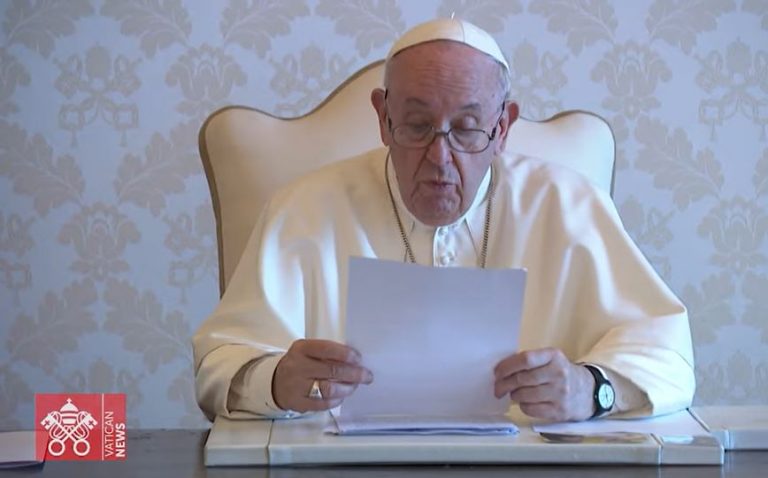
I thank the Director-General, Mr Guy Ryder, who so graciously invited me to present this message to the World of Work Summit. This Conference has been convened at a crucial moment in social and economic history, which presents serious and far-reaching challenges to the entire world. In recent months, the International Labour Organization, through its periodic reports, has done a commendable job of dedicating particular attention to our most vulnerable brothers and sisters.
During this persistent crisis, we should continue to exercise “special care” for the common good. Many of the possible and expected upheavals have not yet manifested themselves; therefore, careful decisions will be required. The decrease in working hours in recent years has resulted in both job losses and a reduction in the working day of those who have kept their jobs. Many public services, as well as many businesses, have faced tremendous difficulties, some running the risk of total or partial bankruptcy. Throughout the world in 2020 we saw an unprecedented loss of employment.
In our haste to return to greater economic activity, at the end of the Covid-19 threat, let us avoid the past fixations on profit, isolation and nationalism, blind consumerism and denial of the clear evidence that signals discrimination against our “throwaway” brothers and sisters in our society. On the contrary, let us look for solutions that will help us build a new future of work based on decent and dignified working conditions, that originate in collective negotiation, and that promote the common good, a phrase that will make work an essential component of our care for society and Creation. In this sense, work is truly and essentially human. That is what it is about, being human.
Reflection on encyclical RERUM NOVARUM on 130th anniversary of its publication

RERUM NOVARUM (15th May, 1891) and the birth of Catholic Social Doctrine
On 15th May, 1891, Pope Leo XIII published encyclical RERUM NOVARUM. This was the birth of Catholic Social Doctrine. As Church, it was the will of looking at a new future where strong economic, social, political, spiritual and cultural changes were been forecasting. In this 2021 Jubilee Year, we take a look at these 130 years of history.
The publication of Pope Leo XIII’s Encyclical Rerum Novarum is considered the birth of Catholic Social Doctrine. But as is usual with births, it had a long “gestation”.
XIX century was full of shocks: up until then, most of population lived from agriculture and, a smaller part, from the trade. The invention of machine does not only lead to the separation of work and capital, but also to the concentration of workers. This meant a great economic upheaval, following of a social one.
Page 2 of 8
latest articles
- Recommendations of the EMCW for the European Elections 2024
- Christmas, a proposal of peace and hope
- Summary from the ECWM seminar from 21-23 September 2023 in Barcelona
- Peace be with you, children of Ukraine and Russia, children of Europe!
- Work Free Sunday - 3rd March
- Christmas Message by the European Christian Workers Movement
- Final Statement of the ECWM Seminar in Lisbon 2022: "Impact of the Coronavirus Pandemic on Employment and Social Affairs - Experiences and Actions for Recovery"
- Europe Day 2022: Statement of European Christian Workers Movement (ECWM)
- May 1st: Covid19 Lockdown And Its Impact On Workers
- 1.701 good reasons to protect Sunday as the day of the rest
On the website of WMCW
World Movement of Christian Workers - Home
18 July 2025
Website of the World Movement of Christian Workers - Site Web du Mouvement Mondial de Travailleurs Chrétiens - Página web del Movimiento Mundial de Trabajadores Cristianos- INFOR June 2025: "Human Dignity, a Daily Struggle"
- Speech by Christine Isturiz, Co-President of WMCW, at the International Labour Conference, Geneva, June 2025
- Message from the WMCW on the occasion of the International Labour Day on May 1st, 2025
- INFOR March 2025: "Informal Work in Caring for Children and the Elderly"
- Message from the WMCW on the Occasion of the Celebration of International Women's Day 2025
- Merry Christmas and Happy New Year
- WMCW Statement on the International Migrants' Day - 2024
- INFOR October 2024: "Our Fight against an Inhuman Policy"
- Message from the World Movement of Christian Workers (WMCW) on the World Day for Decent Work 2024
